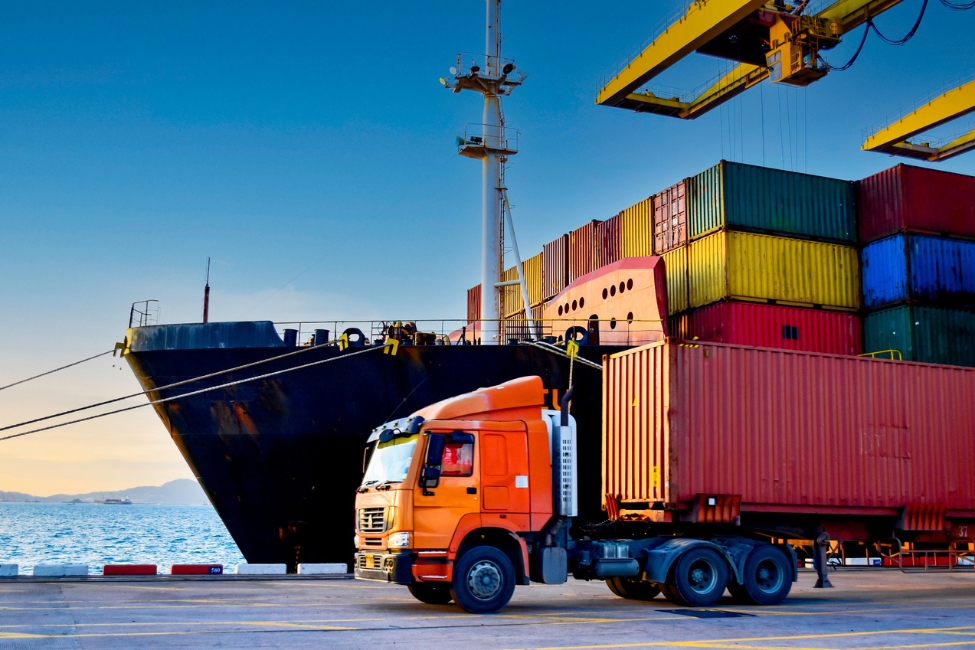FAU Report: Supply Chain Expands to Highest Reading as Tariffs Loom

The logistics industry saw record expansion compared to the past two years, but uncertainties around tariffs and potential economic conditions pose challenges for the supply chain in the coming months, according to researchers at Florida Atlantic University and four other schools.
The logistics industry saw record expansion compared to the past two years, but uncertainties around tariffs and potential economic conditions pose challenges for the supply chain in the coming months, according to researchers at Florida Atlantic University and four other schools.
The January Logistics Manager’s Index (LMI) reads in at 62.0, up (+4.7) from the December 2024 reading. A score above 50 indicates that the logistics industry is expanding, while a score below 50 indicates that the industry is shrinking. This is the fastest reading of expansion in the overall index since June 2022. Five out the eight metrics used to calculate the score saw an increase.
“The incoming U.S. presidential administration has been vocal around what changes they expect to and subsequently have made to the U.S. global trade relationship, and as a result supply chains are required to adopt a nimble and agile footing,” said Steven Carnovale, Ph.D., an associate professor of supply chain management in FAU’s information technology and operations management department.
The LMI, a survey of director-level and above supply chain executives, measures the expansion or contraction of the logistics industry using eight unique components: inventory levels, inventory costs, warehousing capacity, warehousing utilization, warehousing prices, transportation capacity, transportation utilization, and transportation prices. Along with FAU, researchers at Arizona State University, Colorado State University, Rutgers University, and the University of Nevada at Reno calculated the LMI using a diffusion index.
Steady economic growth in the United States over the past six months helped bolster January’s score; increased inventory levels also helped as firm built up their inventory levels to head off any potential added costs due to potential tariffs. Warehousing capacity, on the other hand, dropped to 51.7, signaling that it is near contraction. The drop in capacity led to increased warehousing prices at 73.1, the highest levels since February 2023.
“The decrease in capacity, and subsequent cost increase, is likely the result of two forces intersecting. First, firms knowing that tariffs were looming likely stockpiled goods that were likely to be exposed to the tariffs prior to their announcement/finalization, and second the aftereffects of the holiday season push/return cycle,” Carnovale said. “As the months move forward, watching the split between where and how the capacity/pricing dynamics are shifting between upstream and downstream may serve as a harbinger of things to come."
-FAU-
Latest Research
- Decoding a Decade of Grouper Grunts Unlocks Spawning Secrets, ShiftsFAU researchers used 12 years of underwater audio to study red hind groupers, whose sounds reveal courtship, mating and territorial behavior - offering key clues to ocean changes through sound.
- FAU/Baptist Health AI Spine Model Could Transform Back Pain TreatmentLower back pain is a leading cause of disability. To address this, researchers created a groundbreaking AI system that automates personalized lumbar spine modeling for more accurate diagnosis and treatment.
- Researchers Show How Healthy Habits Can Improve Cognitive DeclineFAU Schmidt College of Medicine researchers say cognitive decline is not inevitable with age and that up to 45% of dementia risk is linked to modifiable factors like poor diet, inactivity and isolation.
- Research Characterizes Remarkable Skills of Octopus Arms in the WildThink your multitasking is impressive? A new study reveals that wild octopuses use their arms with incredible complexity. Each of the eight limbs can perform any type of movement, but clear patterns emerged.
- Study: AI Agents Shift How Hotels Build Guest LoyaltyThe rise of artificial intelligence agents will introduce a new layer of complexity in how the hospitality industry navigates customer loyalty, according to four researchers at Florida Atlantic University.
- Unrealized Losses in U.S. Banks Hold Steady in Q2Unrealized losses in U.S. banks' investment securities portfolios remained mostly unchanged in Q2, according to a screener from a banking and finance expert at Florida Atlantic University.






